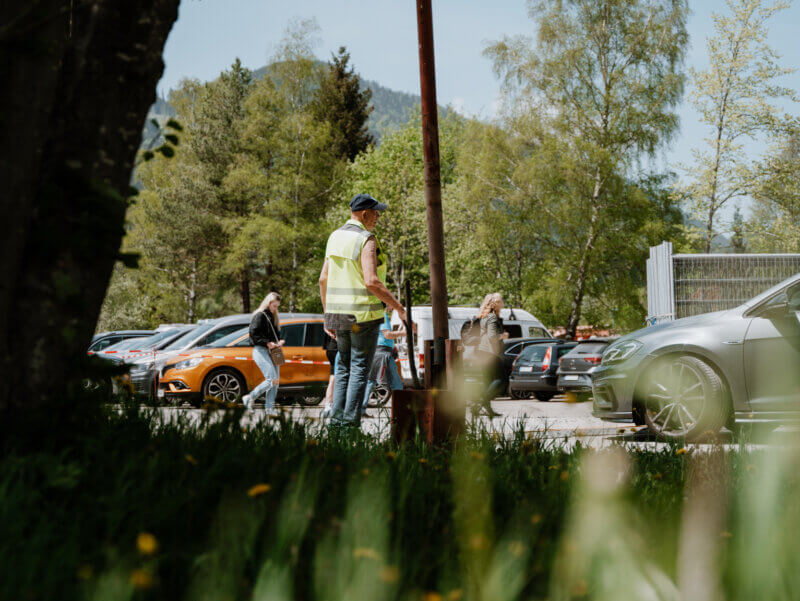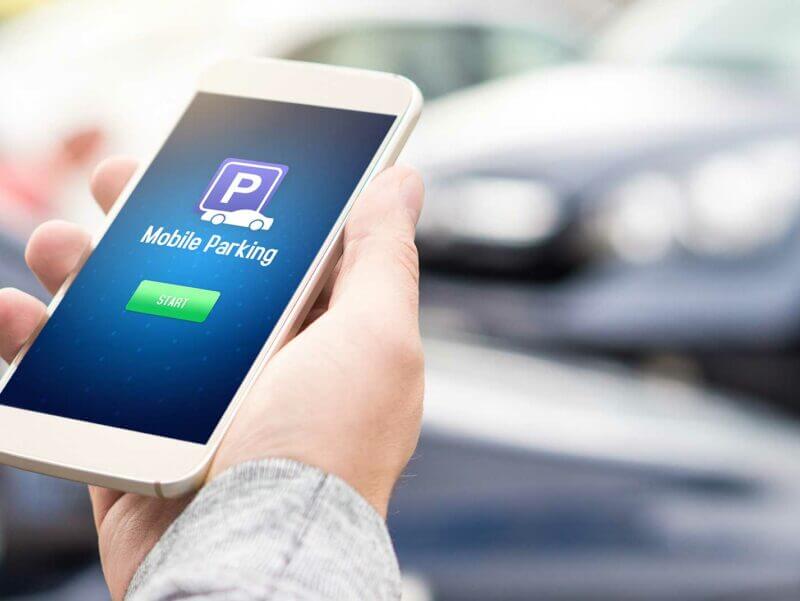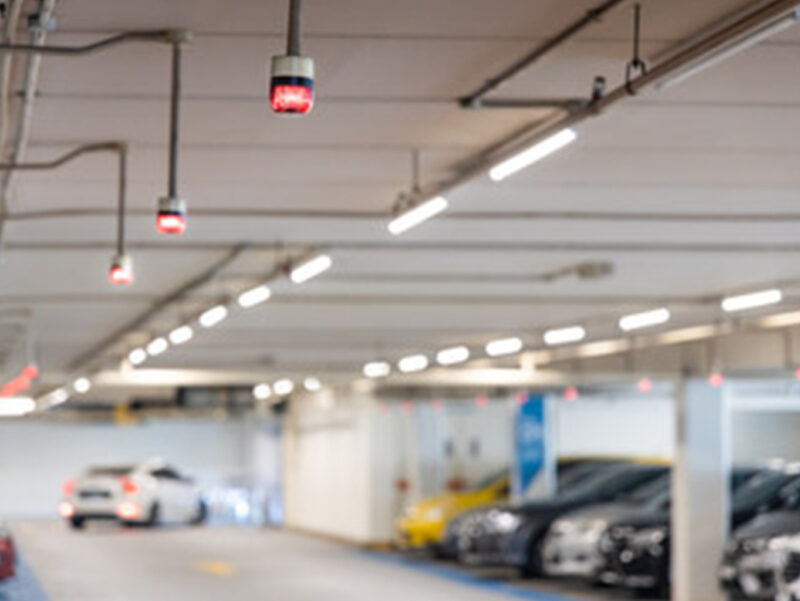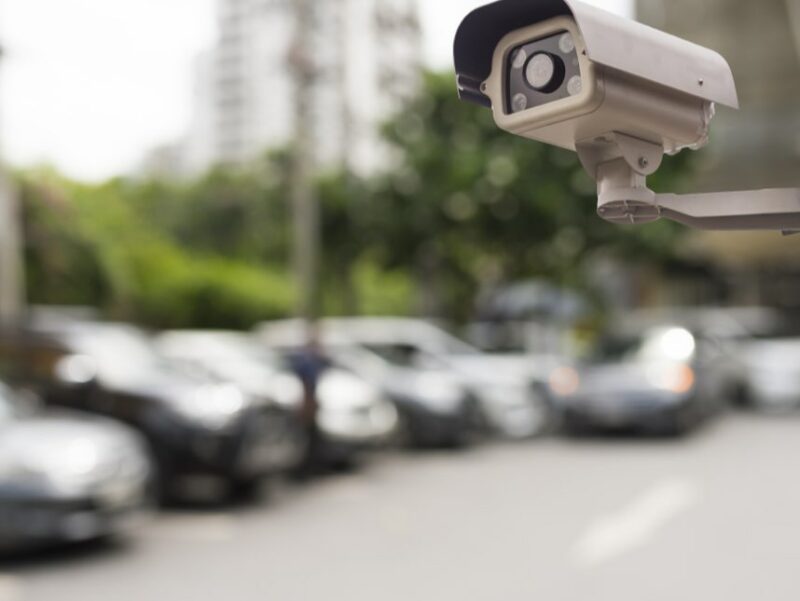Satisfied customers and long-term parkers: modern parking space management for supermarket parking lots

Parking pressure is high in German cities. No wonder, as the number of cars in Germany is continuously increasing. Between 2008 and 2023, the number of cars rose by over 20 percent to 48.8 million.[1] Commuters, residents and store visitors in cities are competing for the scarce parking spaces. Supermarkets are particularly affected by this development. As facilities for daily needs, they are located exactly where parking space is often limited.
More and more supermarkets are already using parking space management in their parking lots or are considering introducing parking space management in order to keep their parking spaces free for their own customers. Depending on the local conditions and the different volumes of third-party and long-term parkers, different concepts are available.
Barrier systems: Effective against long-term parkers
In densely populated neighborhoods, residents often use supermarket parking spaces overnight to avoid having to search for a free parking space in one of the surrounding streets after work. This is particularly annoying for supermarket visitors who find themselves standing in a blocked parking space early in the morning. If you want to keep your parking lot reliably free of long-term parkers, you can achieve this with a barrier system at the entrance and exit. Supermarkets should not underestimate the purchase and maintenance costs. In addition, barriers are a popular target for vandalism, which in turn can result in replacement and repair costs.
Compulsory parking discs: effective against third-party parkers
Supermarket parking spaces in busy districts are often used by third-party parkers to save on parking fees for other facilities, such as cinemas or shopping centers. Genuine customers cannot find a free parking space and do their shopping in other stores with better parking facilities. Many supermarkets therefore impose a maximum parking time with mandatory parking disks during opening hours. An external service provider takes care of checking the parked vehicles and penalizes those who park incorrectly. With this type of parking management, supermarkets should consider the risk of annoying paying supermarket visitors who have forgotten their parking disks.
License plate recognition: customer-friendly against parking pressure
The most modern concept for parking space management in supermarket parking lots is Automatic Number Plate Recognition (ANPR). Supermarkets find it the most customer-friendly solution, as it does not require the use of a parking disk. Cameras at the entrance and exit record the license plates of parked vehicles and determine their parking time. If the driver exceeds the maximum parking time during opening hours or if parking is prohibited at night, a contractual penalty is due. Drivers receive notification of this by post; there is no need for enforcement staff at the parking lot.
In addition, supermarkets can use an ANPR solution to make their parking space available for a fee after closing time - for example as resident parking - and thus help to reduce parking pressure on site. ANPR does not require any investment in parking ticket machines or barrier systems for access control. In conjunction with parking apps, drivers can pay their parking fees without cash. The camera technology used can also help deter burglars and thieves and prevent vandalism in parking lots.
Individual authorizations for different user groups
The license plate recognition software allows supermarkets to extend the parking time for certain license plates or to create unlimited parking authorizations. Suppliers, representatives and employees can thus use the parking lot permanently, regardless of the specified maximum parking time. Tradesmen's vehicles can be authorized to park for one or more days at short notice. The maximum parking time can also be increased for older people and groups of people with disabilities who need longer to make a purchase. If several stores share the parking space in question, they also have access to the software to change the permitted parking time of a vehicle, for example for restaurant or hairdresser visits.
Example: Edeka market "Johannisthaler" in Berlin
Since the beginning of 2020, two license plate scanners have been installed at the entrance to the parking lot of the Edeka "Johannisthaler" supermarket in Berlin. The food retailer is located directly on a main road. Berlin's largest shopping center, according to its own information, is a five-minute walk away. High parking pressure, especially at weekends, is the norm here. In recent years in particular, Edeka manager Hasan Akyol reports that an increasing number of third-party parkers have occupied his 135 customer parking spaces in order to save on parking fees in the shopping center's multi-storey parking lot. For supermarket customers, this often meant driving in circles until a space became available. The Berlin merchant no longer wanted to accept this situation. For him, automatic license plate recognition proved to be the most customer-friendly and effective way of keeping parking spaces free for his customers.
"Initially, we had the car towed away - and unfortunately we sometimes hit the wrong people who were still in the snack bar next door after shopping. The complaints then increased with the classic parking disk. People often forget to put them in the car and then - understandably - get annoyed about the penalty. With license plate recognition, on the other hand, our customers don't have to worry about anything - and have always been able to find a parking space since we started using the solution. And if they get lost, that's no problem either - a few bonus minutes can be added to each license plate in no time at all," explains Hasan Akyol.
Edeka "Johannisthaler" can independently adjust the parking times for customers and employees beyond the specified maximum parking duration via the browser-based access to the ANPR software. ParkRaum-Management PRM GmbH is responsible for managing the system, tracking parking violations and responding to queries from drivers.
Excursus: Digital parking management for the city of tomorrow
As part of an ANPR solution, it would be conceivable to seamlessly integrate supermarket parking spaces into existing urban traffic management plans. City administrations could use the data from the ANPR system to measure parking space utilization in order to better manage traffic flows and optimize traffic infrastructure. This more efficient use of parking space, for example as resident parking outside of opening hours, would reduce parking search traffic in the urban area and thusCO2 emissions.
Choosing the right parking management service provider
When coordinating with a parking management service provider, supermarkets should attach importance to clearly visible and easy-to-understand signage as well as competent customer service. This applies not only, but especially when using ANPR solutions. Although ANPR is already beginning to establish itself in Germany, the population has not yet become "accustomed" to the new technology. Clear instructions at the parking lot and clear answers to queries reduce reservations and create understanding for the use of ANPR.
If supermarkets opt for parking space management with mandatory parking discs, they should ensure that the contracted service provider deploys understanding, well-trained control personnel at the parking lot. Tangible contact persons and low-threshold goodwill regulations, for example by presenting the receipt, prevent conflicts and contribute to customer satisfaction.
Supermarkets should also find out in advance whether receivables from parking violations are passed on to collection agencies by the service provider. Parking space management service providers such as ParkRaum-Management PRM GmbH from Erlangen in central Franconia, which handles claims management for vehicles registered in Germany in-house, generally provide their own customer service for parking violations, have extensive goodwill regulations and in turn ensure more satisfied parkers. The service provider's Google ratings, for example, can serve as a transparent indicator of fair and accommodating treatment of customers.
Supermarkets should also discuss compliance with GDPR requirements with a potential service provider. For example, data collected as part of parking space checks must be processed in compliance with the GDPR. Under no circumstances may this data be sold on to third parties for other purposes, such as advertising measures. Reputable ANPR service providers will also point out of their own accord that fully automated data transfer for the purpose of sanctioning parking violations is not legally permissible under the GDPR. Parking management companies, such as PRM, therefore verify each license plate manually before initiating a parking violation.
Introduction of parking space management in supermarket parking lots
Supermarkets are well advised to seek professional support for the introduction of parking management in their parking lots. Companies such as PRM have many years of experience in parking space management, they advise on the selection of the technology used, taking into account the situation on site and a sensible tariff structure. They also install and maintain the technology and operate the parking management system. The latter includes the tracking of parking violations and customer service for parkers. This enables supermarkets to manage their parking space in a customer-friendly way and without any effort on their part.
[1] https://www.umweltbundesamt.de/daten/verkehr/verkehrsinfrastruktur-fahrzeugbestand#entwicklung-des-kraftfahrzeugbestands





